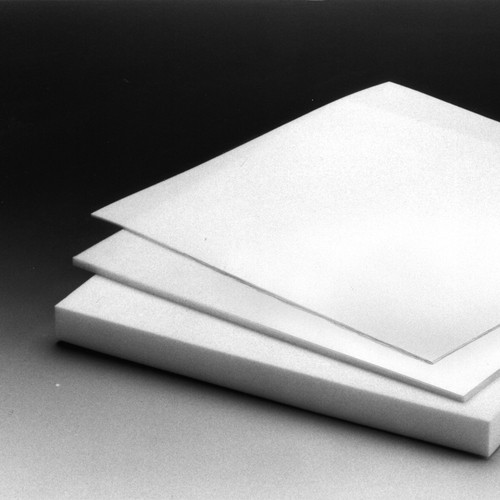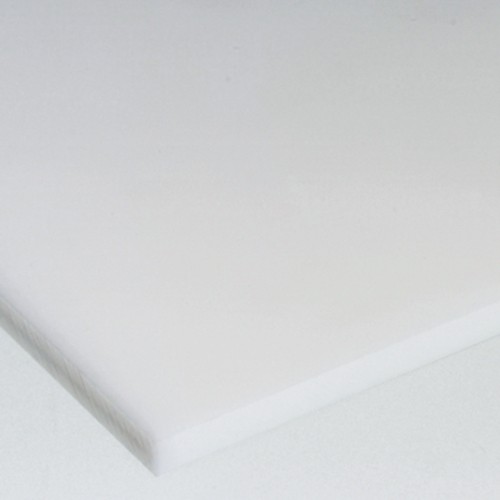The thermoplastic polyoxymethylene with the technical abbreviation POM is also known as acetal resin or polyacetal. In chemical terms, the plastic derives from formaldehyde. According to its polymeric structure, which depends on the synthesis process, a distinction is made between homopolymeric polyoxymethylene with the abbreviation POM-H and copolymeric polyoxymethylene with the abbreviation POM-C. However, the physical, technical as well as chemical properties of both polymer types differ only marginally. There are clearer distinctions only in the melting behavior of both polymers: POM-H melts at 178 C, POM-C already at 166°C. For temperatures above 220°C both polymers start to degrade. In practice, there is usually no distinction made between POM-H and POM-C.
Compared to many other plastics, polyoxymethylene is generally distinguished by high toughness as well as great hardness, strength and dimensional stability combined with low friction values. The density is approx. 1.4 g/cm3. POM is resistant to oils, greases, fuels and alkalis, but its resistance to hydrolysis is not very good, so that the plastic is quickly decomposed by strong acids. Also its resistance to weather, the stability to permanent moisture and UV-radiation, is not particularly high. POM can therefore be used only to a limited extent in the chemical sector as well as for outdoor applications.
On the other hand, polyoxymethylene is an allround material for the technological area which can be precisely machined by all cutting processes. Due to its excellent mechanical properties polyoxymethylene can in many cases fully replace even metal materials. Thus, low-maintenance components made of POM such as bearing bushes, shafts, gears and gear racks, and even complete modules made of POM such as gear transmissions and gear boxes have become firmly established in the experimental and precision mechanical engineering especially due to the high running smoothness and only low wear. POM is also in demand as construction material for electrical installations, since it features favourable electrical properties such as high impedance and high electric strength.
RCT Reichelt Chemietechnik offers foils and plates made of POM-C and POM-H from its comprehensive range of semi-finished products.
Foils and plates made of POM-H are opaque. The natural colored material is suitable for permanent use in the temperature range between -50 C and +100°C, for a short time even up to +140°C. The standard quality is available in plate thicknesses between 0.5 mm and 5 mm with dimensions of 500 mm x 500 mm and 1,000 mm x 1,000 mm.
As special quality, RCT Reichelt Chemietechnik also delivers plates made of POM-H that meet the strict requirements of the FDA (US Food and Drug Administration) and the BfR (German Federal Institute for Risk Assessment). They can therefore also be used in the medical technology and in pharmaceutical areas. These plates are available in narrowly tolerated thicknesses between 8 mm and 50 mm and dimensions of 300 mm x 300 mm.
Plates made of POM-H are black colored. Their thermal endurance corresponds to that of POM-C. The extruded and tempered material is designated as FDA-compliant and meets the requirements of the respective regulations. POM-H plates are available in narrowly tolerated material thicknesses between 8 mm and 40 mm and dimensions of 250 mm x 305 mm as well as 305 mm x 500 mm.
The whole range of POM foils and plates is represented in detail in our handbook THOMAPLAST® II (Semi-finished products).




